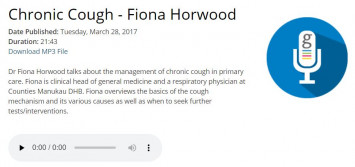In most cases, treatment for cough is not necessary. Mild, short-term coughs are likely to be due to a viral infection that will get better on its own within a few weeks. Antibiotics are only prescribed if your cough is caused by a bacterial infection.
You can care for yourself by:
- resting
- drinking plenty of fluids, including lemon and honey drinks
- sleeping with your head propped up on pillows
- avoiding smoke, and if you smoke quitting smoking
- using cough medicine – it doesn’t cure a cough but may give you some relief from it (see below)
- using your inhaler if you have asthma
- taking antihistamines if you have hay fever.
There are a number of cough medicines available on the market. They may be sold in combination with other medicines in cold and cough products, or as cough mixtures or cough lozenges. There is little evidence to suggest that cough medicine is any more effective than simple home remedies (eg, honey, saltwater gargles and warm drinks). They're not suitable for everyone and may have side effects. If you're not sure, talk to your pharmacist. Examples of cough medicines include:
- cough suppressants – used for dry coughs and may control the urge to cough such as dextromethorphan, pholcodine (unavailable in Aotearoa New Zealand after 12 January 2024) and codeine (only available on a prescription from your healthcare provider). Read more about why pholcodine is now unavailable(external link).
- expectorants – used for productive coughs. They loosen mucus making it easier to cough up.
There are many causes of cough, the most common being viral infections such as a cold or the flu. Other common causes include smoking, allergies (such as hay fever), asthma and bronchitis. Cough may also be a sign of gastro-oesophageal reflux disease (GORD). In this video, Dr Shah, a GP, describes the common causes of cough and when you should see your doctor.
Video: Cough
This video may take a few moments to load.
(NHS, UK, 2015)







